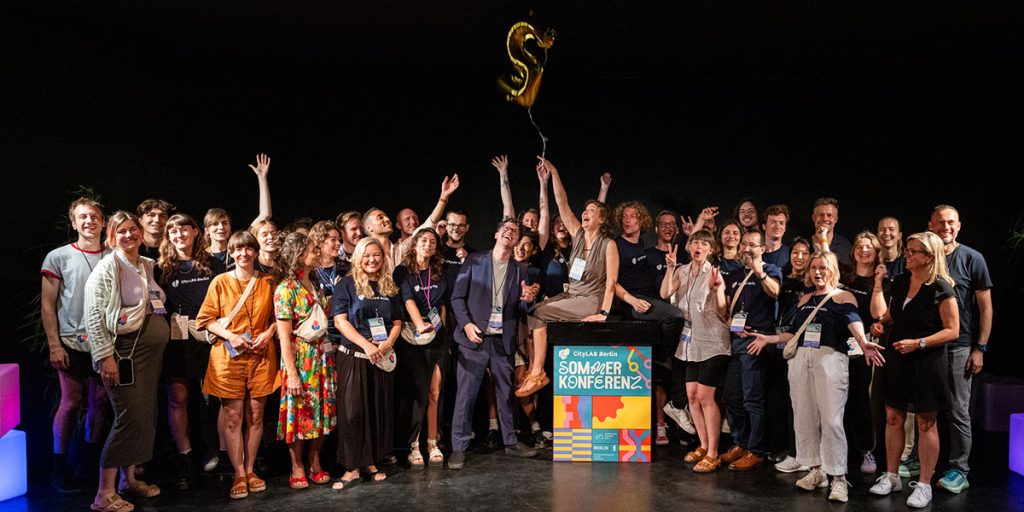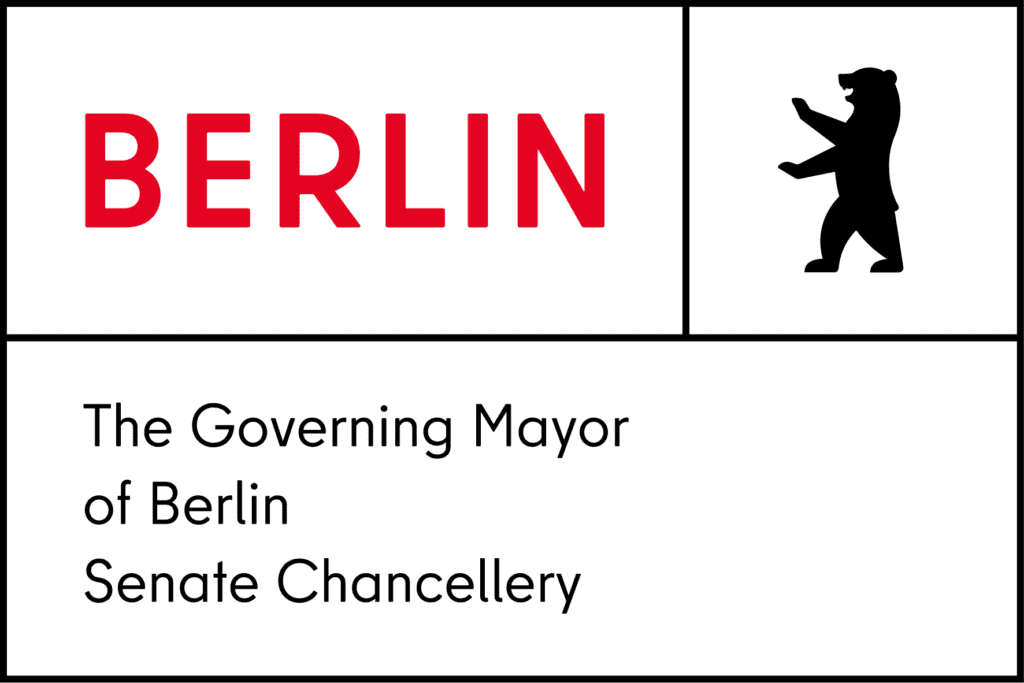71 speakers, 44 programme items and 700 participants – these are just some of the numbers that made 27 June at Haus Ungarn an unforgettable Sommerkonferenz for us! With the start of the first sessions at 9 a.m. sharp, the rooms were already filling up, and by the start of the main stage programme at 10 a.m. everything was at full capacity. Even the remarkable temperatures of up to 30 degrees could not dampen your energy on site – with full rooms, an infectiously good atmosphere and numerous inspiring guests and conversations, it was a day full of highlights for us, a selection of which we share with you here from the various formats.
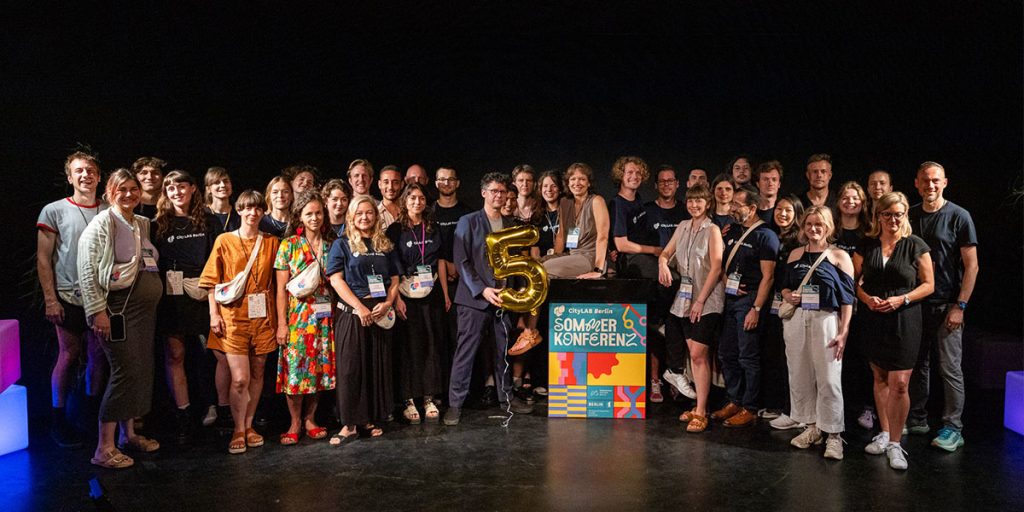
We have turned 5 years old – but are we any wiser?
In addition to our core topics such as digitalisation for the common good, innovation processes in administration, prototyping and open data, our fifth summer conference was also dedicated to our fifth anniversary. In his opening speech of the main stage programme, our director Dr Benjamin Seibel also used our first anniversary as an opportunity to present the most important lessons learned from five years of innovation work with the state of Berlin.

Looking back and looking forward, it once again became clear what defines us and what is important to us: the focus on rapid implementation, user-centred work, transparency and openness. Have we become wiser in five years? Our answer is, of course, with full conviction: YES! If there’s one thing we’ve learnt, it’s how quickly five years can go by – but also that you can achieve a lot together if you want to.
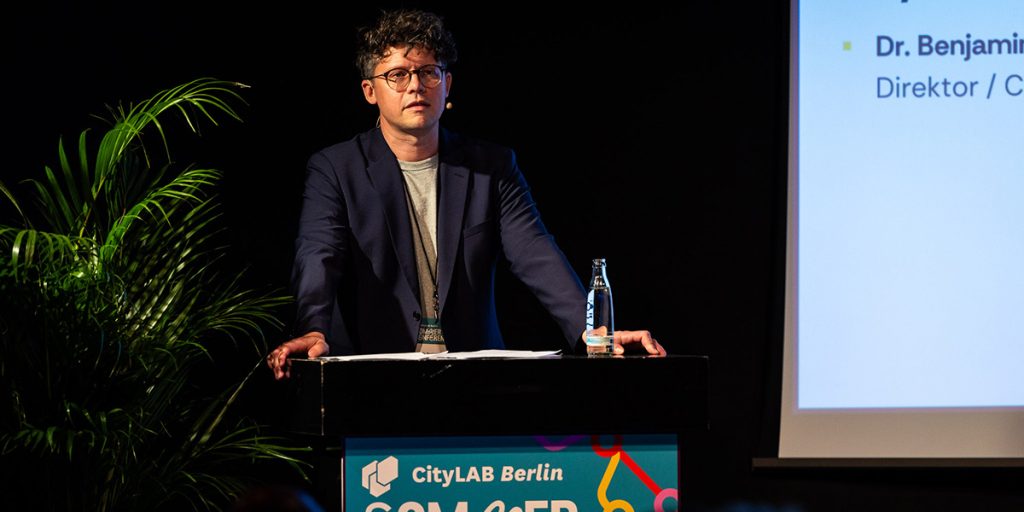
Meetups and networking – a different kind of idea generation
What better way to start the day than by discussing open data and data governance? The participants at the Open Data Breakfast among you apparently felt the same way – in three keynote speeches by Betül Özdemir, central person responsible for open data in the state of Berlin at the Berlin Senate Chancellery; Regina Paesler-Schorling, Transformation Manager at the Ministry of the Interior and Sport Hamburg and Dénes Jäger, Project Coordinator Open Data & Policy at the Open Knowledge Foundation Germany e.V., the basis was laid for the discussion on data inventories, artificial intelligence as support in processing requests and the first open data ranking. In a relaxed atmosphere and with our esteemed colleagues from the Open Data Informationsstelle Berlin (ODIS Berlin), new ideas were rolled out and exchanged over coffee and croissants.
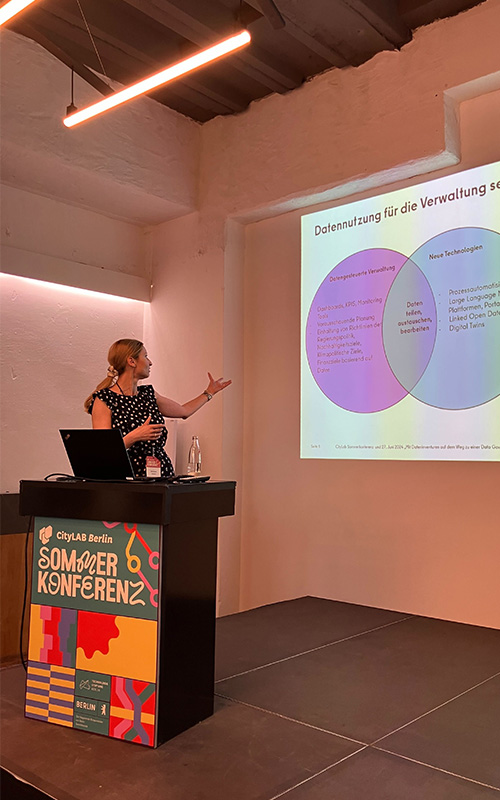
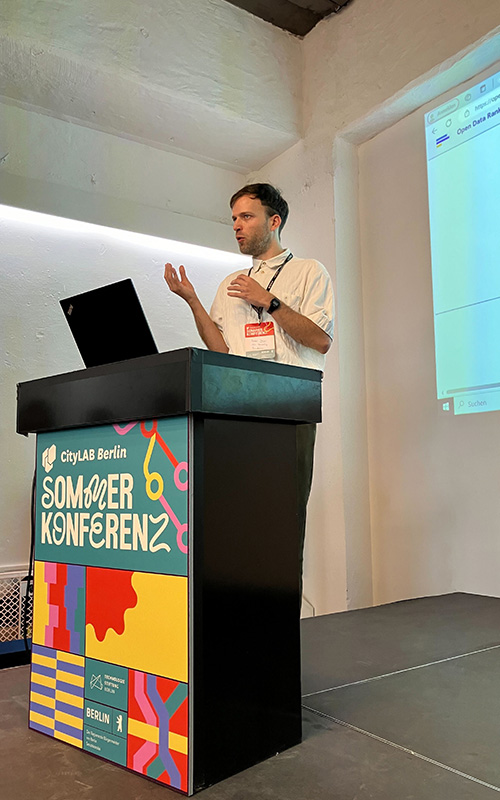
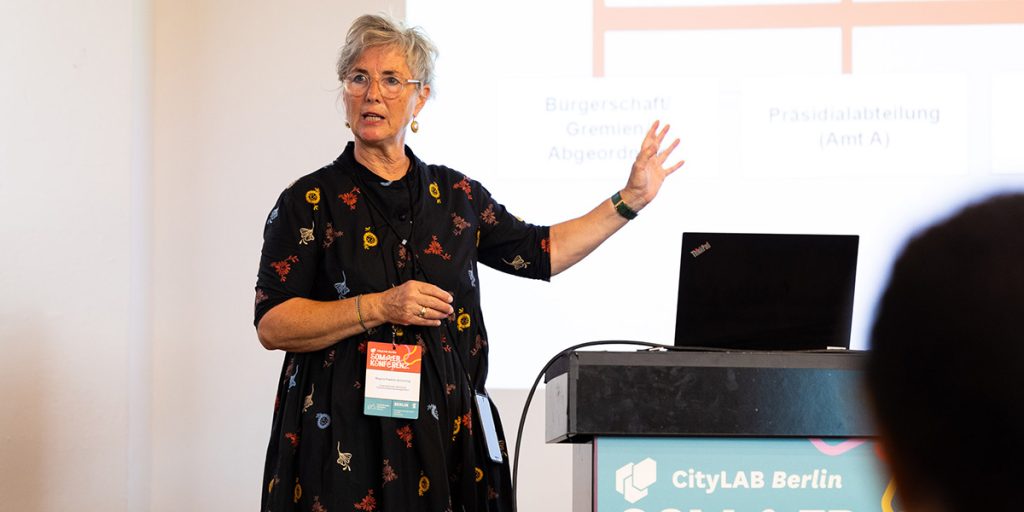
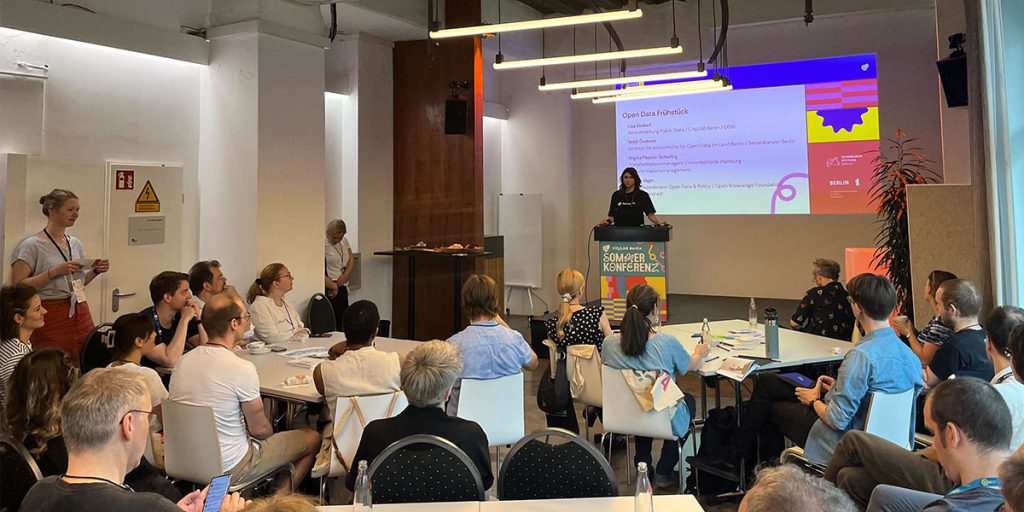
In addition to having breakfast together, going for a walk together often stimulates new ideas – which is why a group of administrative staff set off early at this year’s summer conference to think together about innovations and the structures required for this in their own authorities. Further food for thought was provided by our CityLAB service and UX designers Tobias Witt and Edmundo Galindo, as well as our project manager for administrative innovation Lisa Schmechel.
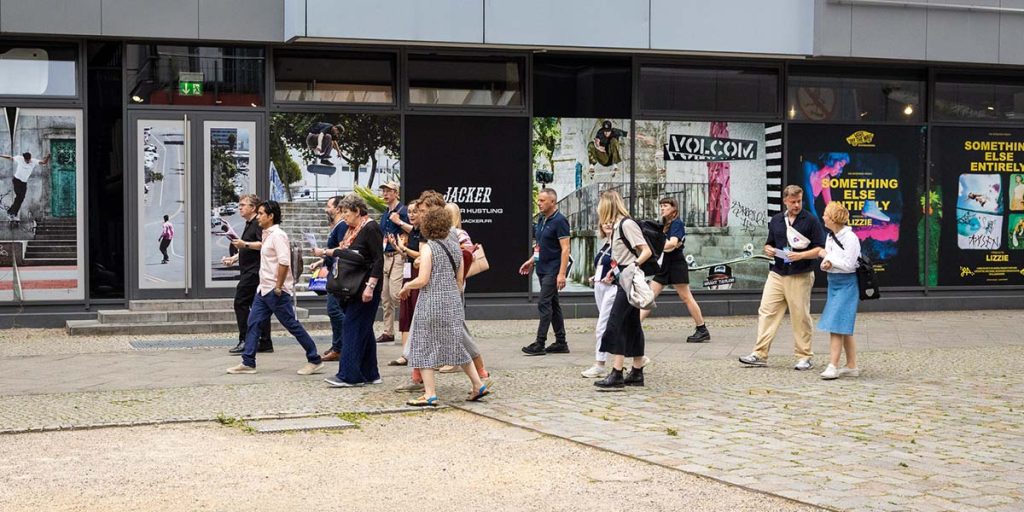
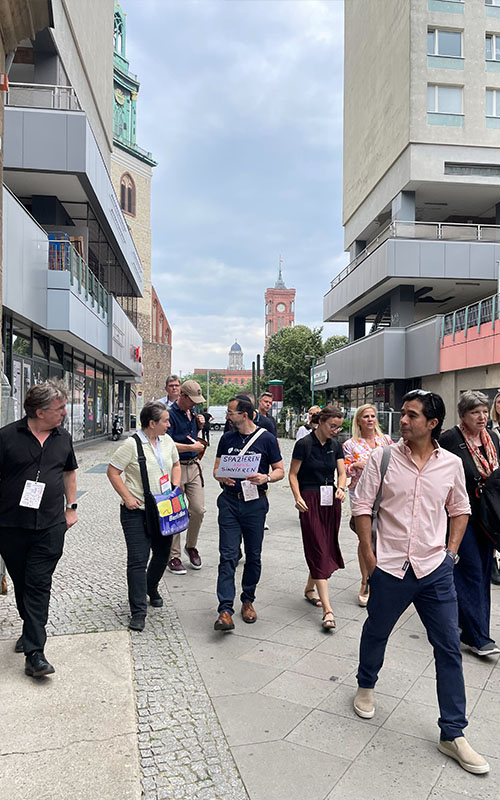
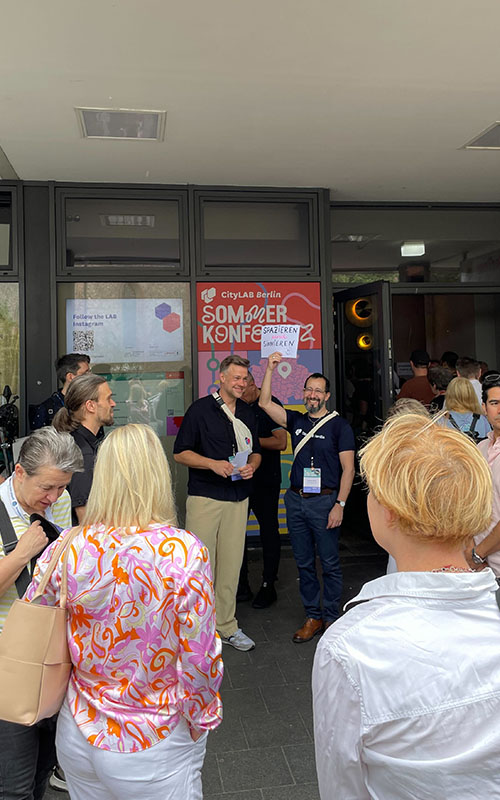
Our participants had to come up with the winning idea in administration bingo – with good humour, creativity and a bit of luck, they not only developed new solutions to problems of Berlin’s administrative digitisation in a playful way, but also won some prizes! The best brain cell training to keep you going even after a lot of input!
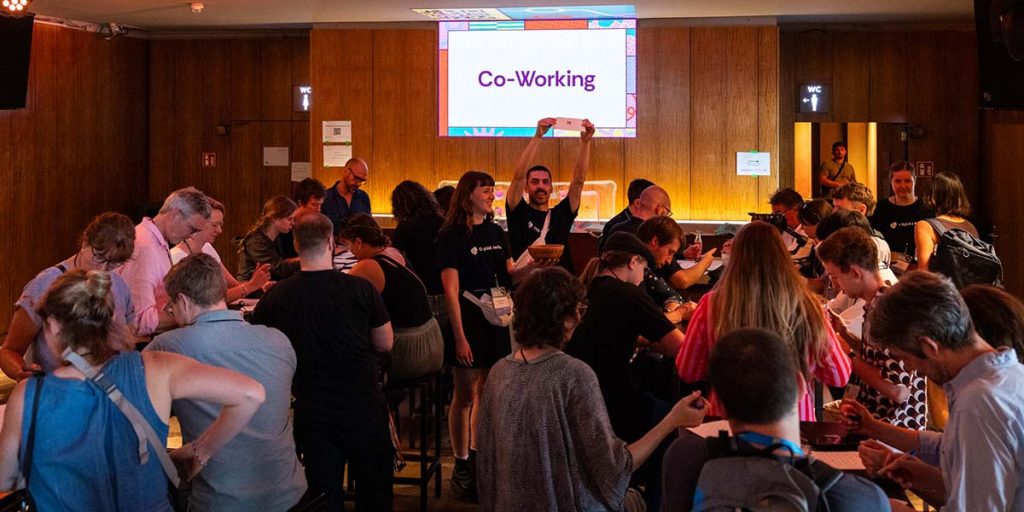
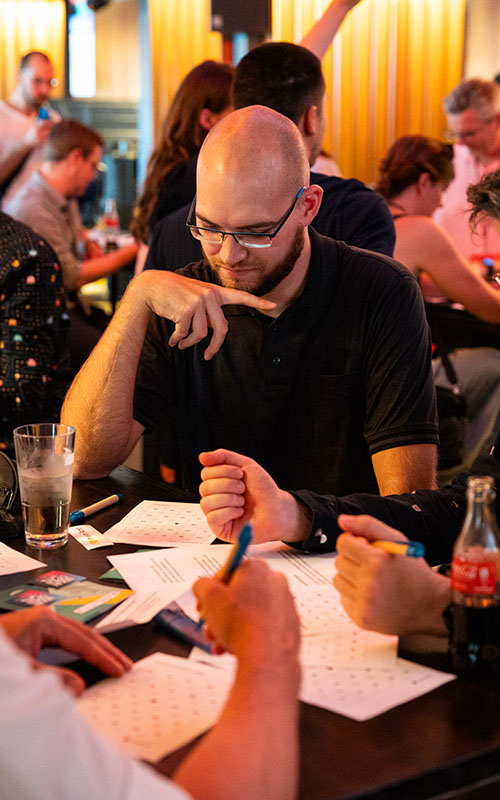
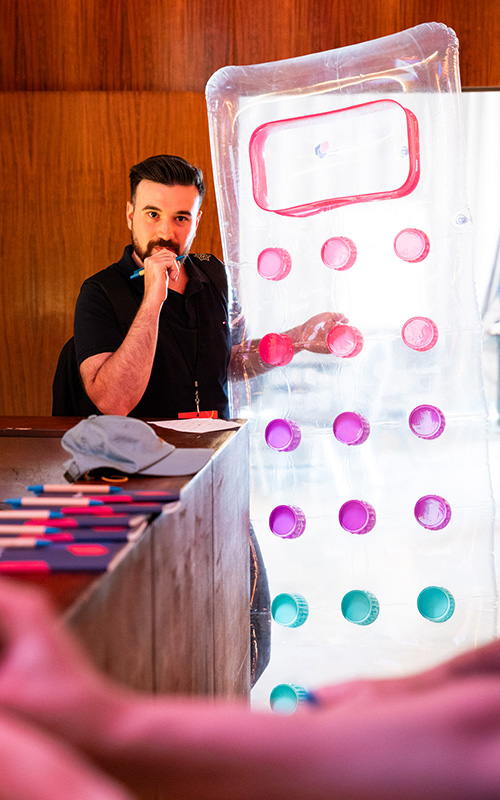
Anyone who was in the mood for the administrative world after the many meetup and exchange formats was in for a treat with the card game ‘Bin nicht Zuständig’, developed as part of the Strategie Gemeinsam Digital: Berlin and designed by aufsiemitgebrüll. The game took a playful, tongue-in-cheek approach to the madness of applications.
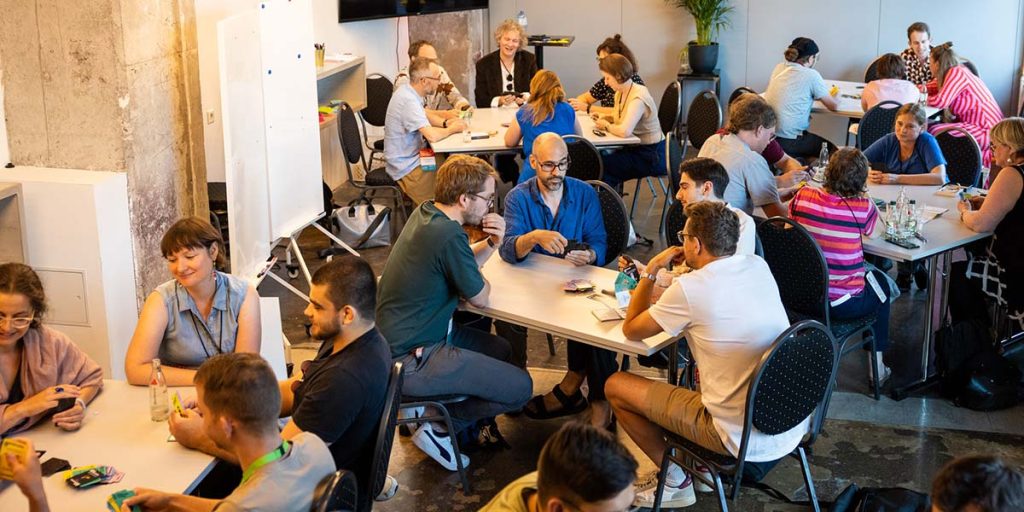
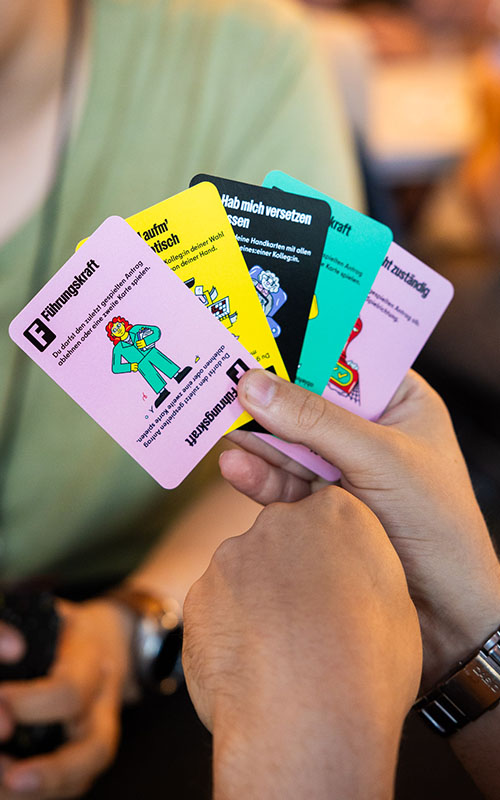
There was also plenty to discover in the foyer – from the talking bookshelf by Birds on Mars Berlin to our AI idea cube.
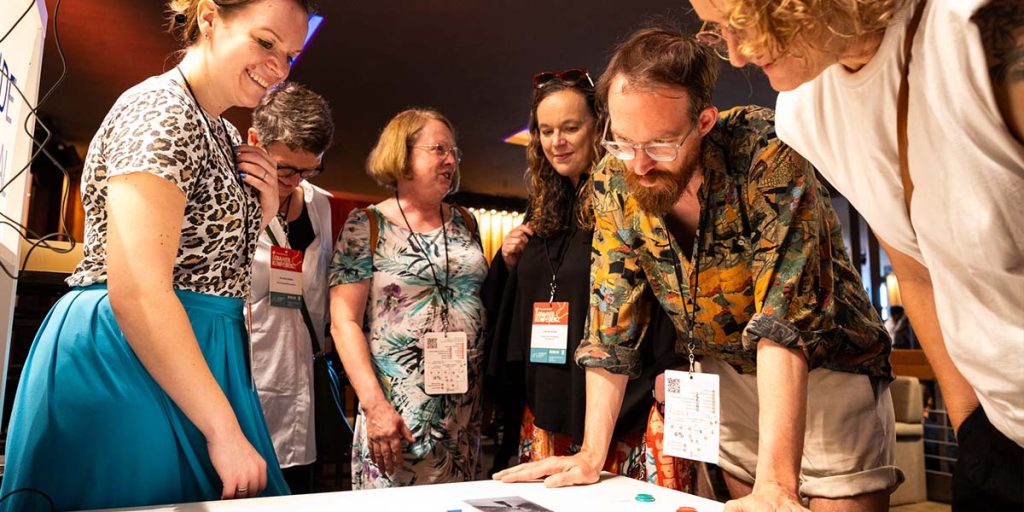
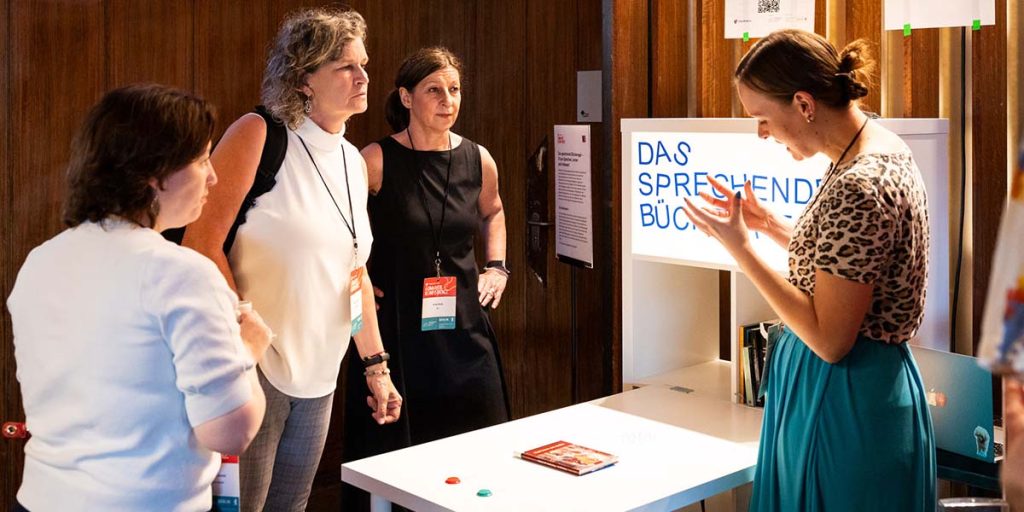
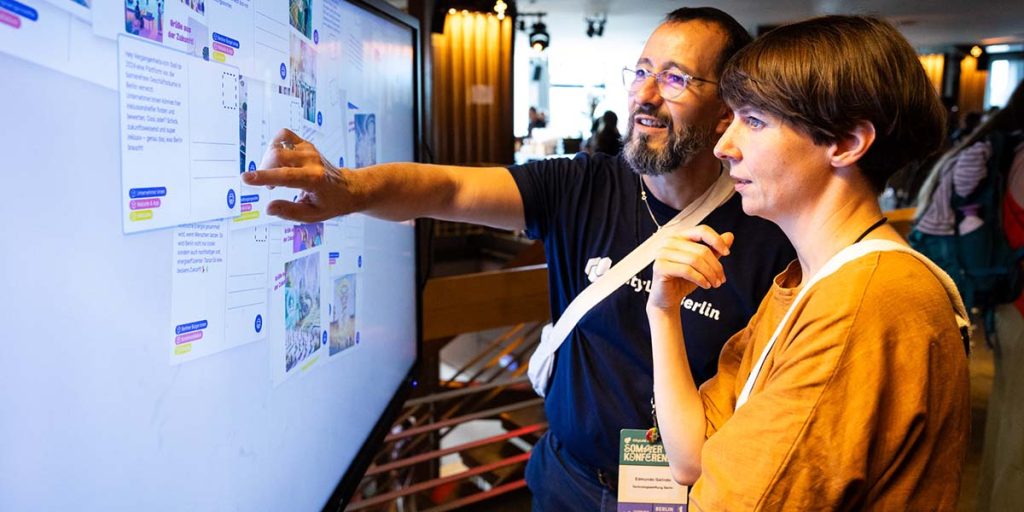
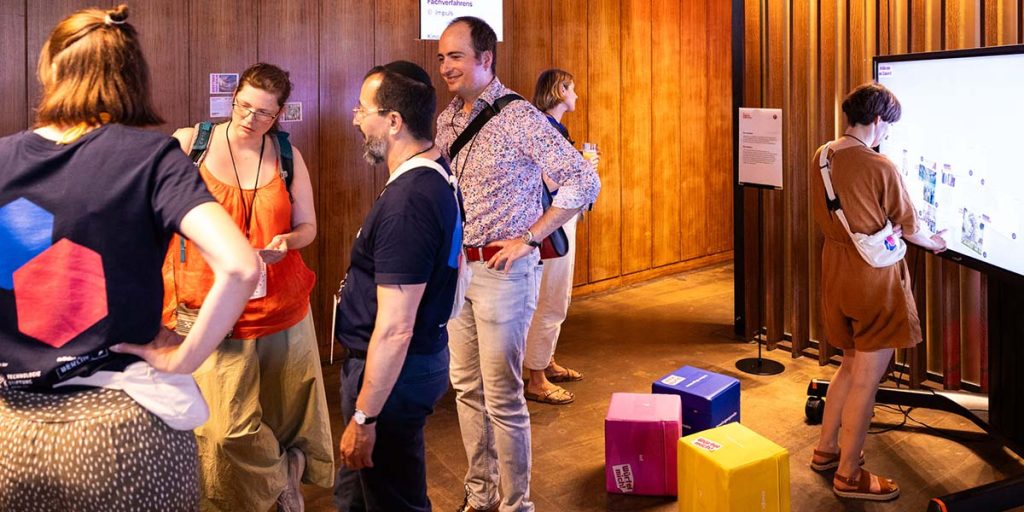
Great cinema: The main stage programme inspired people to find solutions and dream
There are phrases that contribute to immediate relaxation. ‘We’ll find a solution to that’ is one such phrase, as Paulina Fröhlich, Deputy Managing Director of the Berlin think tank “Das Progressive Zentrum”, knows from her own experience. In her keynote speech in the Haus Ungarn cinema, she emphasised that, contrary to the widespread fixation on problems in Germany, there are enough people who prove in their jobs and everyday lives that we can also be solution finders. It often helps to change your perspective and focus on what you can change yourself. If you manage to bring this up, you can also provide relief and empowerment in your immediate environment – reason enough to give it a try yourself!
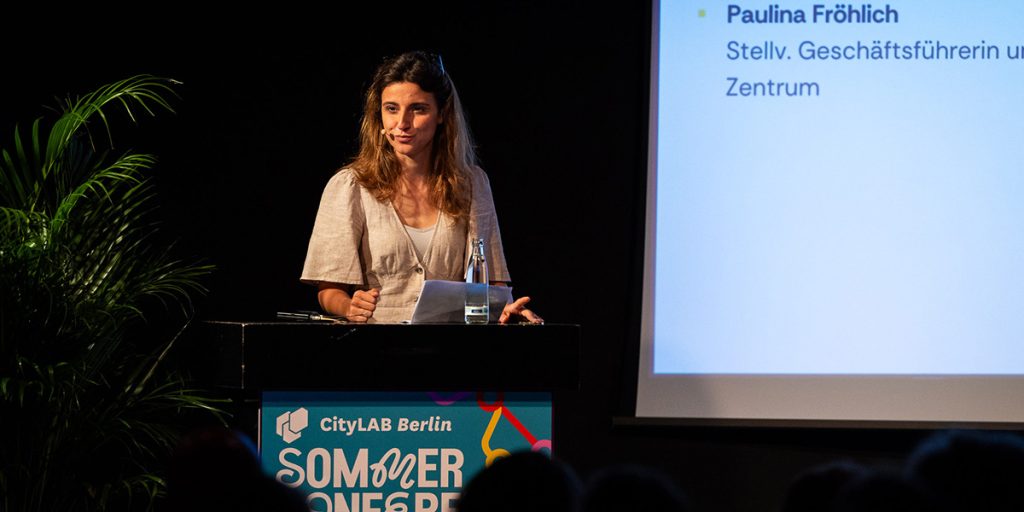
Marco te Brömmelstroet, Professor of Mobility Concepts of the Future at the University of Amsterdam, also started dreaming about the power of language. With his ukulele, he interactively challenged his audience to change their perspective and made it clear that, for him, it is not a transport revolution that is needed, but rather a social revolution. People need to interact more with each other in public spaces and learn to trust and respect one another. He demonstrated that collective negotiation of right of way and traffic can work using a road junction where pedestrians, cyclists and car drivers meet accident-free without traffic lights – an example from the Netherlands, of course, from which we can learn a lot.
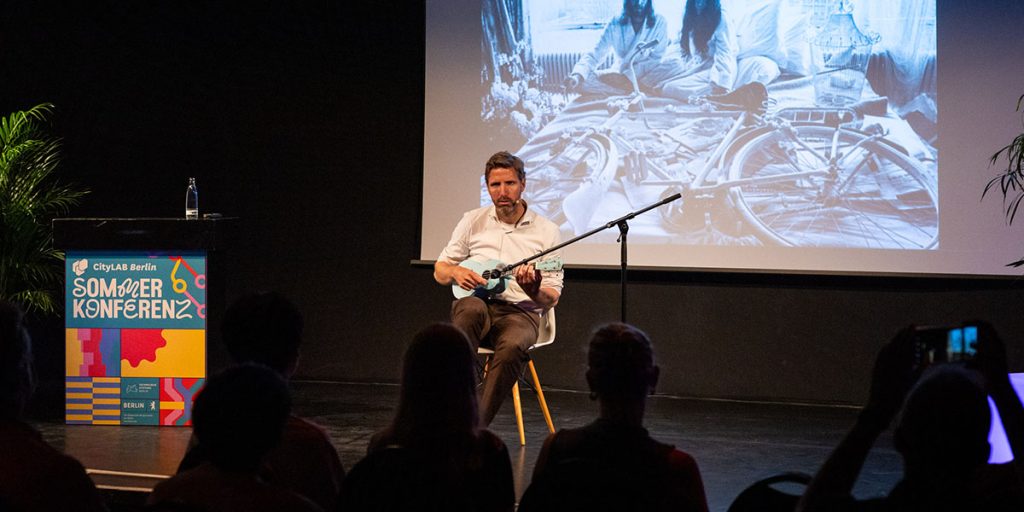
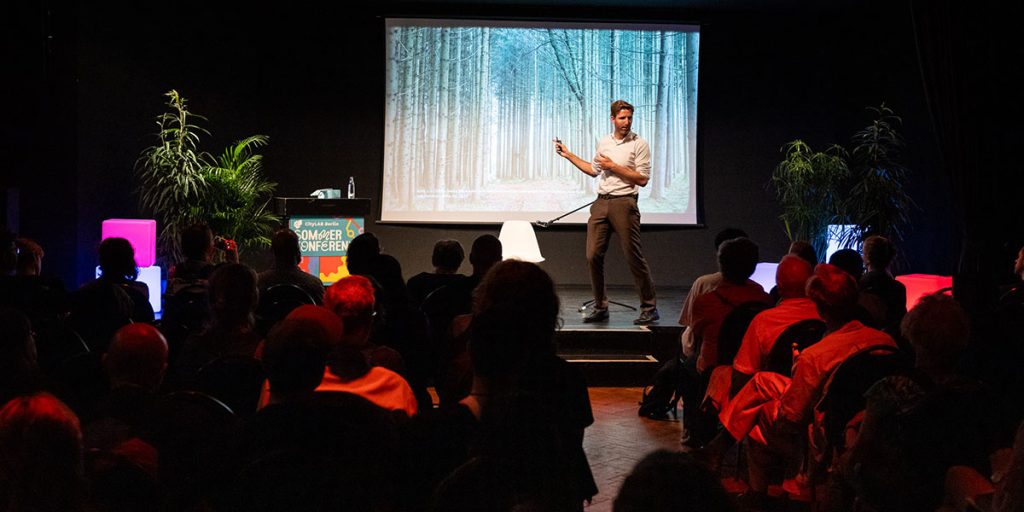
At the end of the main stage programme, the dialogue between Martina Klement, Chief Digital Officer of Berlin, and Nicolas Zimmer, Chairman of the Board of the Technologiestiftung Berlin, once again focused on the planned steps for the digitalisation of Berlin’s administration. According to Klement, the first step is to communicate to the district offices and citizens which services are already being offered digitally. There is still a lack of clarity on both sides.
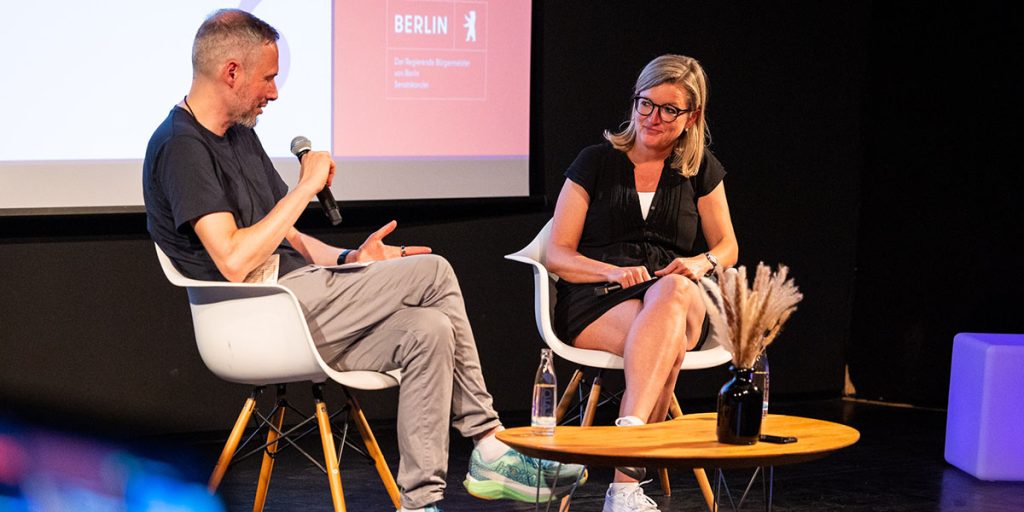
She also wanted to draw attention to the tasks currently performed by the administration and which of these could be eliminated, optimised or digitalised in the future. Artificial intelligence also plays a role here: due to the increasing pressure in the authorities in view of the shortage of skilled workers and the challenge of keeping pace with technological developments, scepticism towards AI has decreased and openness to breaking new ground has increased. The AI assistant Parla is a successful example of how AI can be put to good use – but according to Klement, it would already be a big step to extensively automate administrative processes.
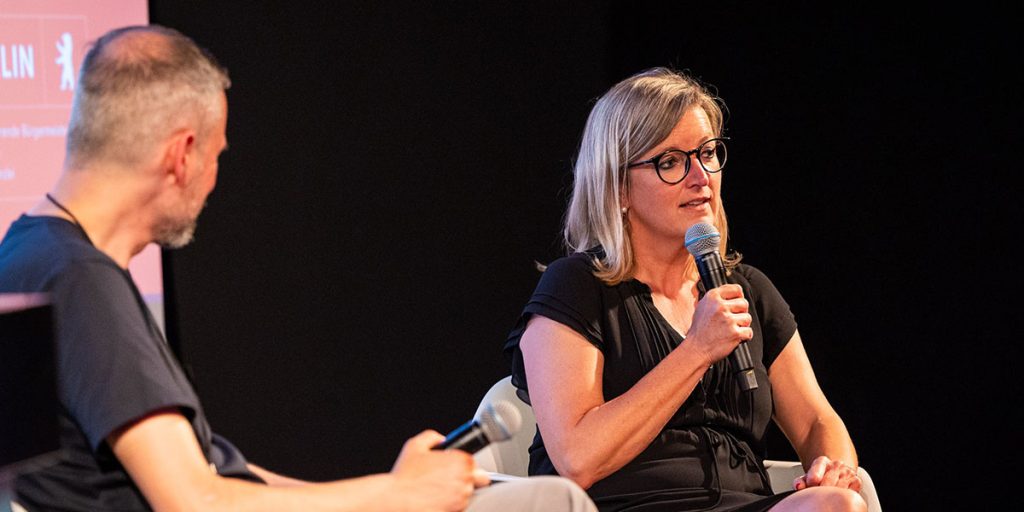
When asked what administration and CityLAB can learn from each other, Klement emphasised the agile way of working, from which they could ‘take a leaf out of our book’. Overall, it is important that the two do not drift apart in their different speeds – the ‘administration tanker’ and the ‘CityLAB speedboat’ – but instead continue to fertilise each other. For the future, she believes it is important to use the CityLAB prototypes to show what is possible and works, in order to then approach the big issue of stabilisation.
Applying for a passport and co. without an appointment – leaps in the air in the Kiezlabor
The announcement on the main stage that you could renew your passport and other documents at the Kiezlabor directly opposite Haus Ungarn on the day of the summer conference without an appointment led to spontaneous applause. The Ausbildungsbürgeramt Friedrichshain-Kreuzberg, which offered selected services as a guest at the Kiezlabor and made many citizens quite happy, was then able to make further leaps in the air.
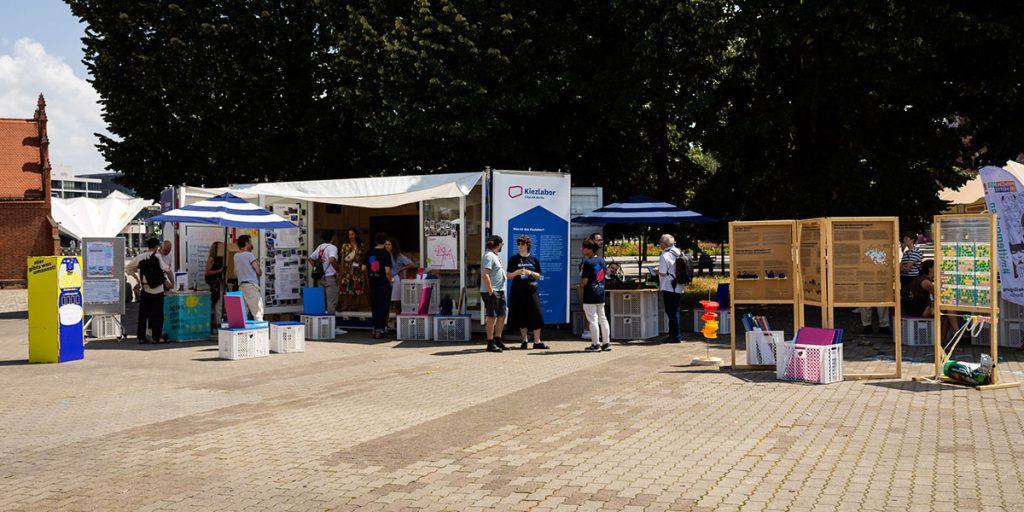
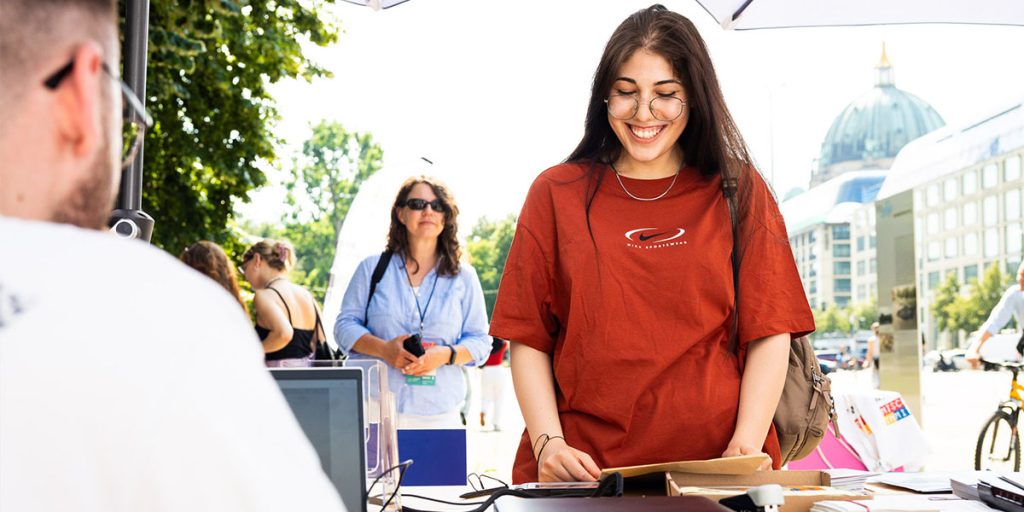
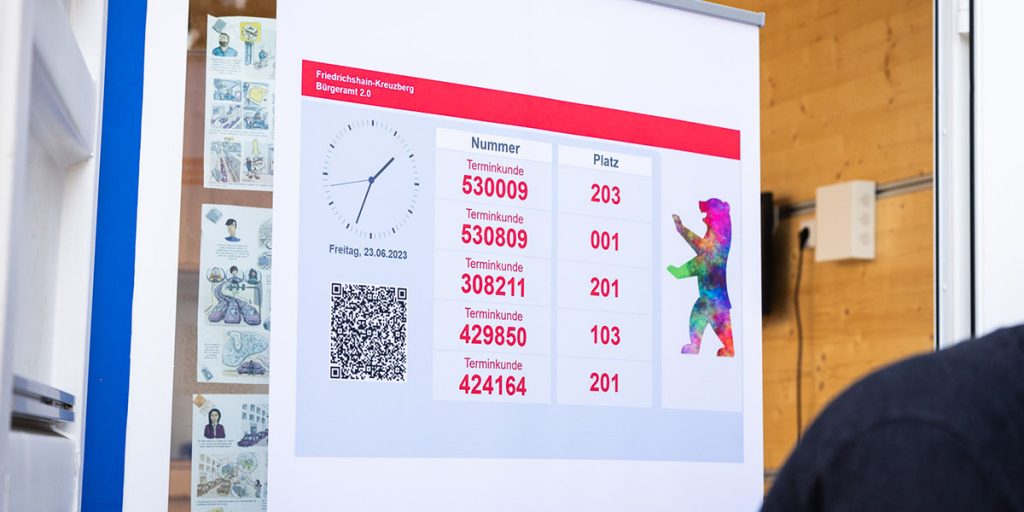
The Governing Mayor Kai Wegner and Martina Klement paid a personal visit to get an idea of our container and the dialogue with the training office. Visitors were also able to find out more about the Kiezlabor previous locations in an interactive exhibition.
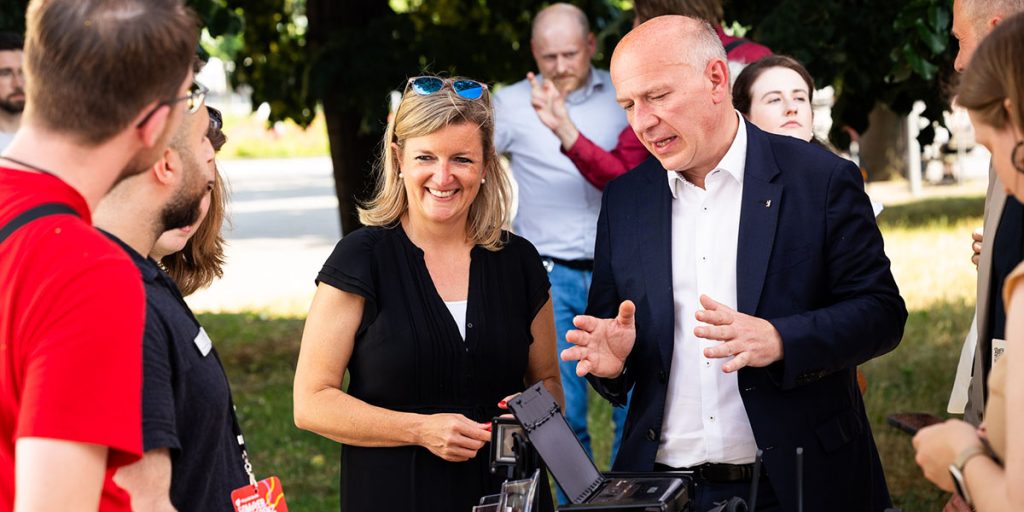
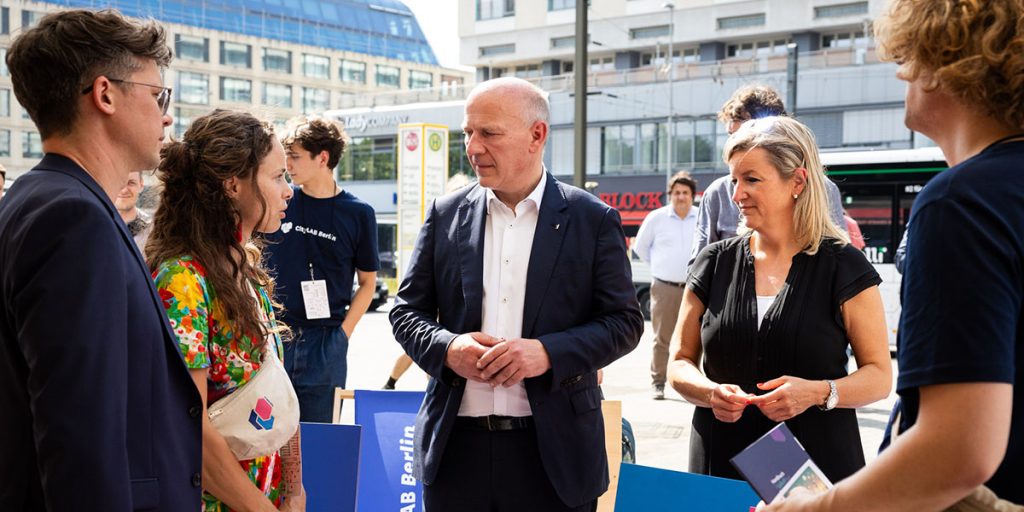
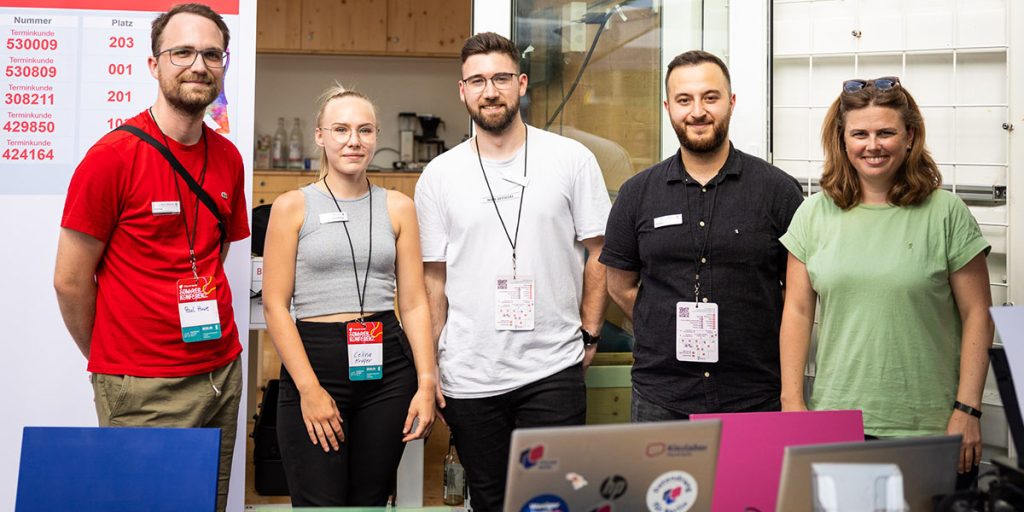
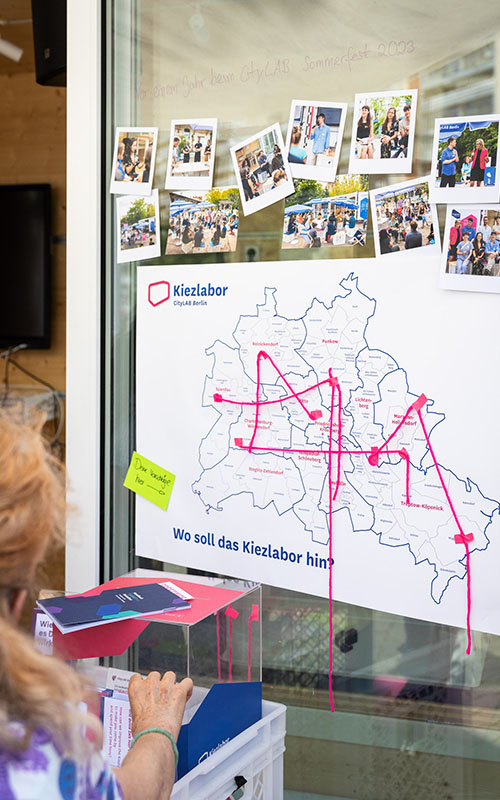
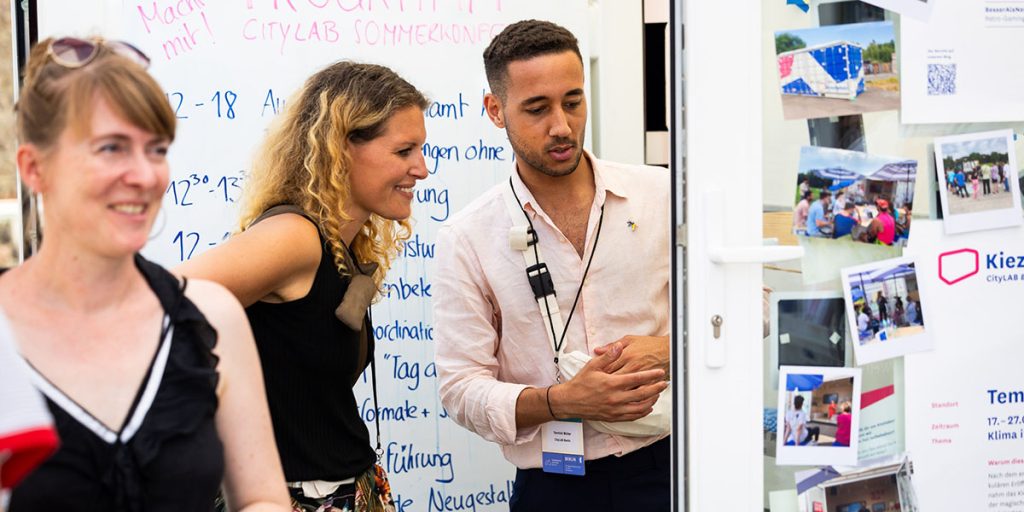
Open Call für Verwaltungsinhalte: Nur Mut!
Wie ein roter Faden zog sich das Thema Mut durch die Workshops, die im Rahmen unseres Open Calls für Programminhalte aus der Verwaltung stattfanden. In seinem interaktiven Impuls zeigte Christian Fuchs, Beauftragter für barrierefreie Informations- und Kommunikationstechnik im IT-Dienstleistungszentrum Berlin (ITDZ Berlin), mit welchen Mitteln wir heute schon eine bessere digitale Barrierefreiheit in der Verwaltung herstellen können.
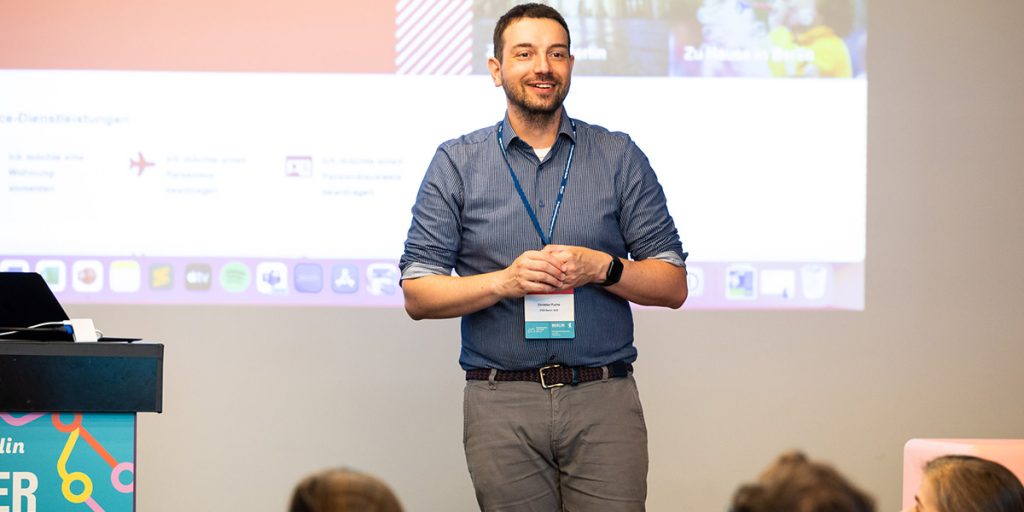
Kiel’s Chief Digital Officer, Jonas Dageförde, argued that we also have the right conditions to develop our own software or automate work steps in the administration. And under the title: ‘Just do it – shaping the administration with the courage to change’, Martina Nolte, Team Leader eGovernment at the City of Mönchengladbach; Jan Klumb, Officer for Order, Digital Administration and Citizen Services at the City of Wiesbaden and Anna Stahl-Czechowska, Project Manager at the Senate Department for Labour, Social Affairs, Equality, Integration, Diversity and Anti-Discrimination, demonstrated in their panel with good practices that courageous action is an important driver of innovation.
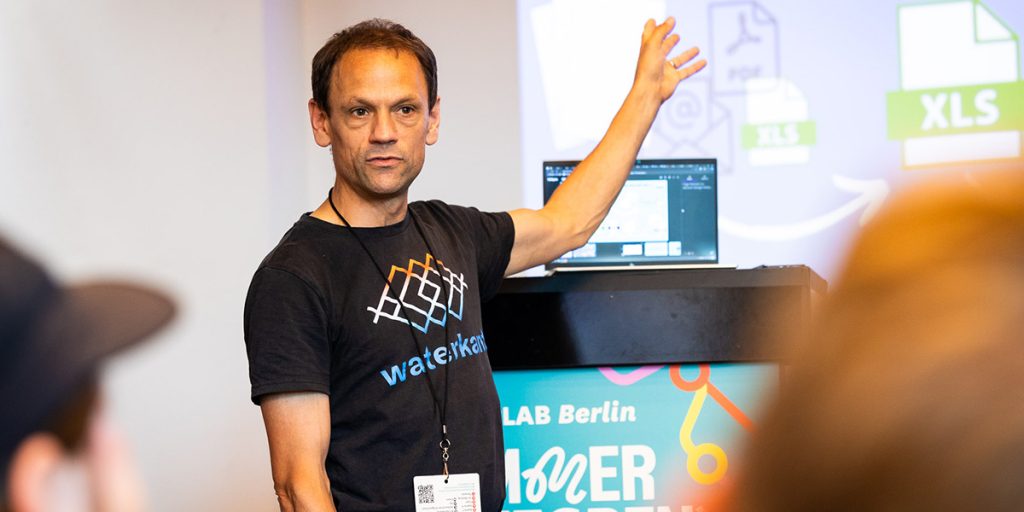
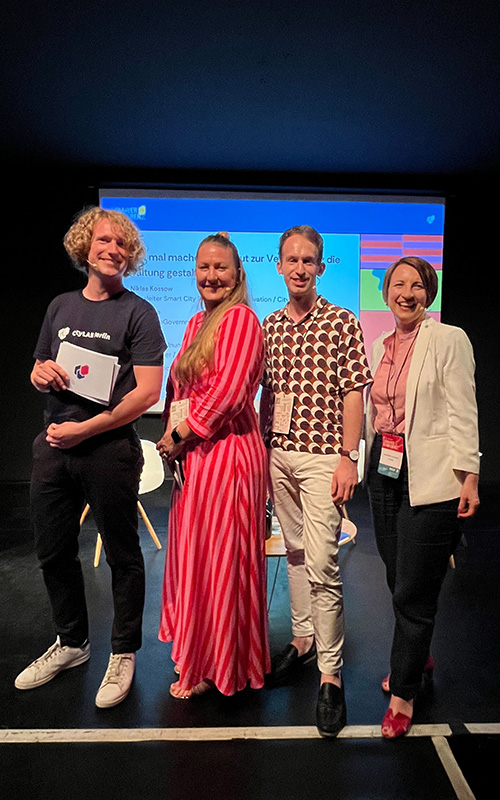
Further exciting insights were provided by the numerous workshops at the CityLAB Sommerkonferenz – including from funding consultant Mira Pape on the use of AI when applying for funding; into the digital and smart city strategy Gemeinsam Digital: Berlin by Karen Laßmann, Head of Smart City and Data Management at the Berlin Senate Chancellery together with Kannika Thaimai, Senior Transformation Manager at DigitalService GmbH des Bundes and her colleague, Transformation Manager Lene Baumgart, as well as by our Prototyping Team Leader Ingo Hinterding in the development of the AI-Assistent Parla.
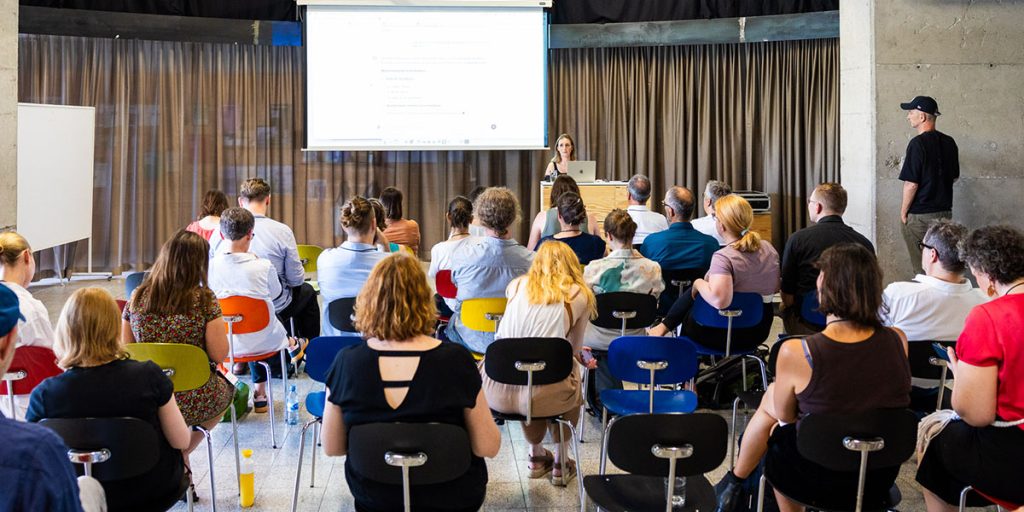
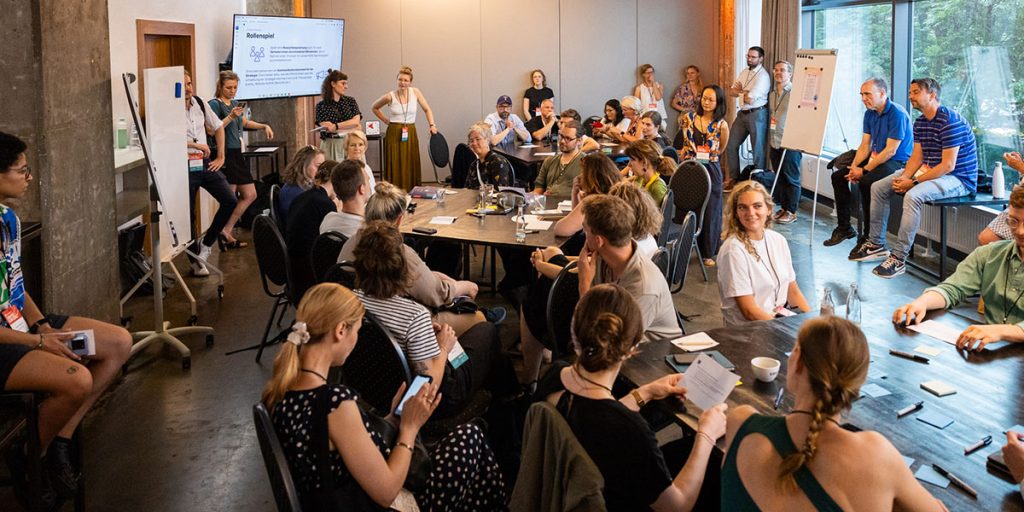
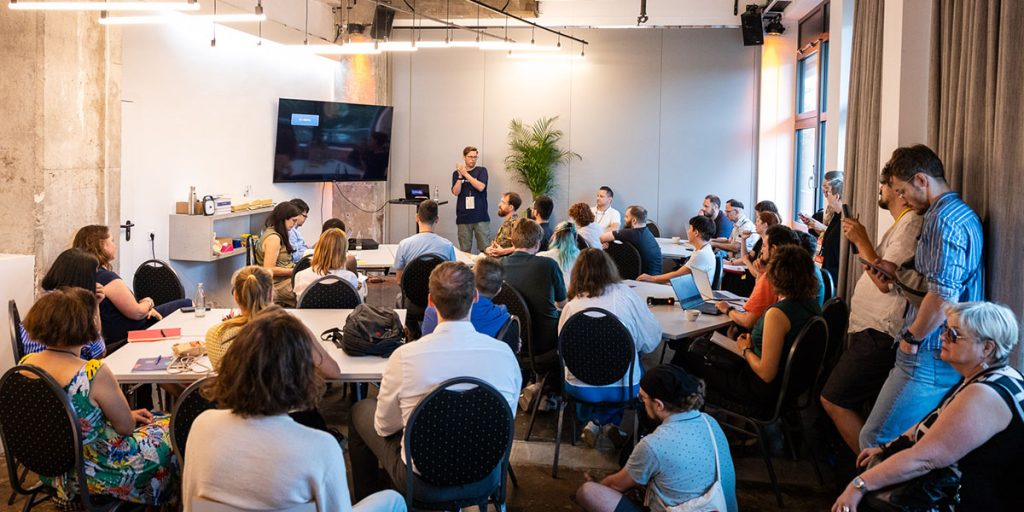
Head off, body on: Start the evening with relaxed muscles
Laughing and long-forgotten muscles could be exercised as part of our evening programme: While stand-up comedian, creator and actor Fabi Rommel took us on a journey through Berlin’s everyday madness, the interactive dance session by DJ collective Tanzen3000 loosened up the last tense muscles.
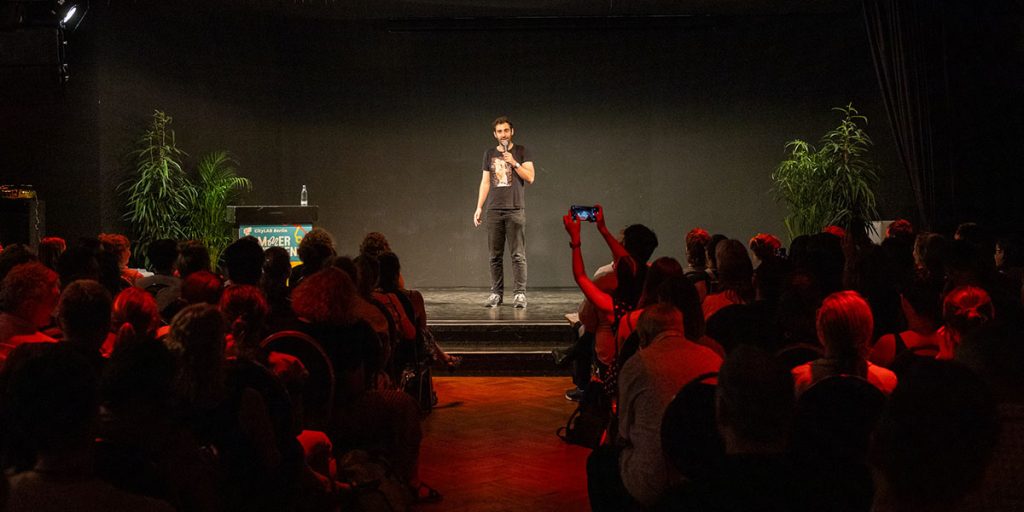
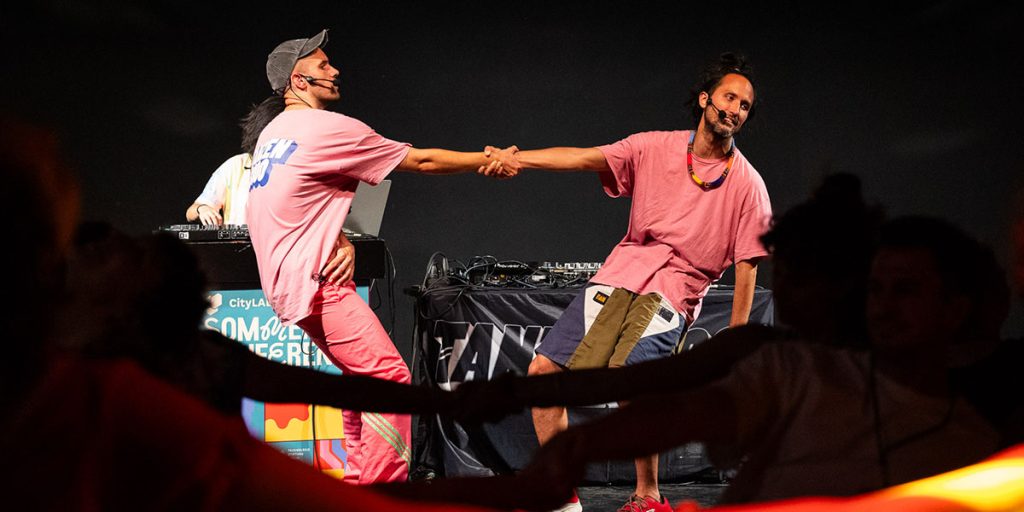
With this fitting conclusion to an intensive, inspiring and exuberant day, we would once again like to express our sincere thanks to everyone who helped us shape the diverse programme and shared their experiences and expertise! Many thanks to everyone who attended, participated in the discussions and made the 2024 Sommerkonferenz an unforgettable anniversary for us. We can hardly wait to spend the next five years working with you on the issues close to our hearts and shaping the city of tomorrow!
